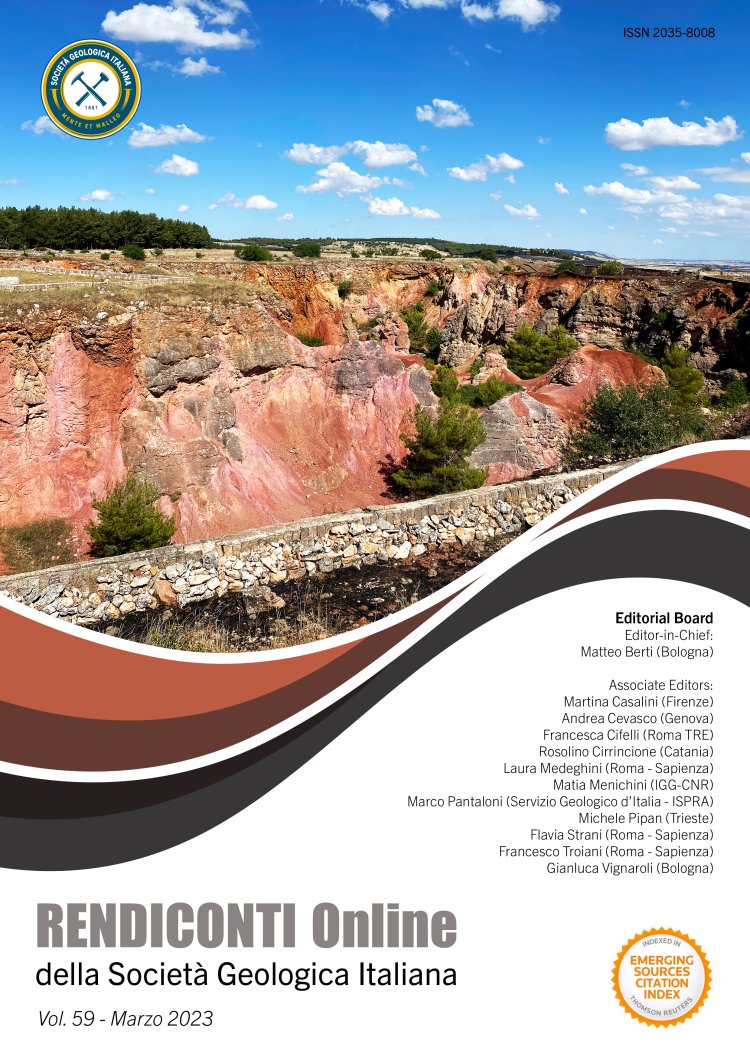
Diagenesis and petrophysics of regional sandstone suites in Southern Apennines Foreland Basin, Italy
Massimo Civitelli1, Mario Borrelli1, Sara Criniti1, Domenico C.G. Ravidà2 & Ettore Falsetta1
1Dipartimento di Scienze della Terra, Universita` della Calabria, via P.Bucci, cubo 15b, 87036, Rende, Italy.
2GeoZentrum Nordbayern, Friedrich-Alexander-University (FAU) Erlangen-Nürnberg, Erlangen, Germany.
Corresponding author e-mail: massimo.civitelli@unical.it
Volume: 59/2023
Pages: 40-48
Abstract
The southern Apennines foreland region preserves deep-marine turbiditic clastic wedges with contrasting and mixed petrofacies, including 5 distinctive sandstone suites: I) quartzarenite suite of the Numidian Sandstone, II) quartzolithic sandstone suite of the Corleto Perticara Formation, III) quartzofeldspatolithic sandstone suite of the Cilento Group (San Mauro and Albidona Formations), IV) quartzofeldspathic suite of the Gorgoglione Formation, V) arkose sandstone suite of the Oriolo, Nocara, Castelvetere formations. Since the great complexity of these sediments, the main diagenetic events and the key petrophysical properties were investigated to update a database that could be an effective method for petrophysical parameters prediction for similar foreland petroleum systems. The most widespread diagenetic minerals are carbonate, mainly calcite and dolomite, occurring as replacement on detrital grains or as pore-filling cements, and less quartz, phyllosilicate and Fe-oxides and hydroxides cements. These minerals accounted for a widespread process of cementation that, together with compaction greatly influenced the sandstone suites petrophysics, from the lowest porosity median value (3.2 %) of the Numidian Sandstone to the highest value of the Oriolo Fm. (16,75 %). In fact, these formations show porosity and permeability values depending by detrital modes that control the effect of compaction, cementation and dissolution during diagenesis.
Keywords
Get Full Text